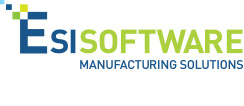
The industrial sector is experiencing great change. Here below are the fiscal concessions that will support the more adventurous companies during this growth phase.
03 25 2017 The economic support for innovation must necessarily pass through fiscal concessions. The Industry 4.0 Plan is an excellent development opportunity for our Country and the Government has put into place a series of useful instruments. Let us consider them in detail.The Circular “4/E”, a collaboration between the Ministry for Economic Development and the Revenue Agency, establishes the bonuses and requisites for receiving the concessions. Two important provisions immediately spring to view:
- The extension of the super-amortisation with a rate of 140%;
- The hyper-amortisation with rate of 250%.
Again speaking of numbers, there will be a tax saving of 336 thousand euro on an investment of 1million euro. The interesting aspect of the extension of the super-amortisation is the extension to intangible fixed assets, i.e. software. Access to concessions is guaranteed also with the purchase of the licence of use of the software, on condition that the asset falls within the total assets.
Research is unmistakably an intangible asset. The Industry 4.0 Plan makes provision for fiscal loans up to a maximum of 20million euro (to date the limit has been 5 million), increasing from 25% to 50%. The novelties also concern research undertaken by private parties. To make use of deductions that could reach 30%, it must make use of start-ups and no longer the individual companies.









 Websolute
Websolute